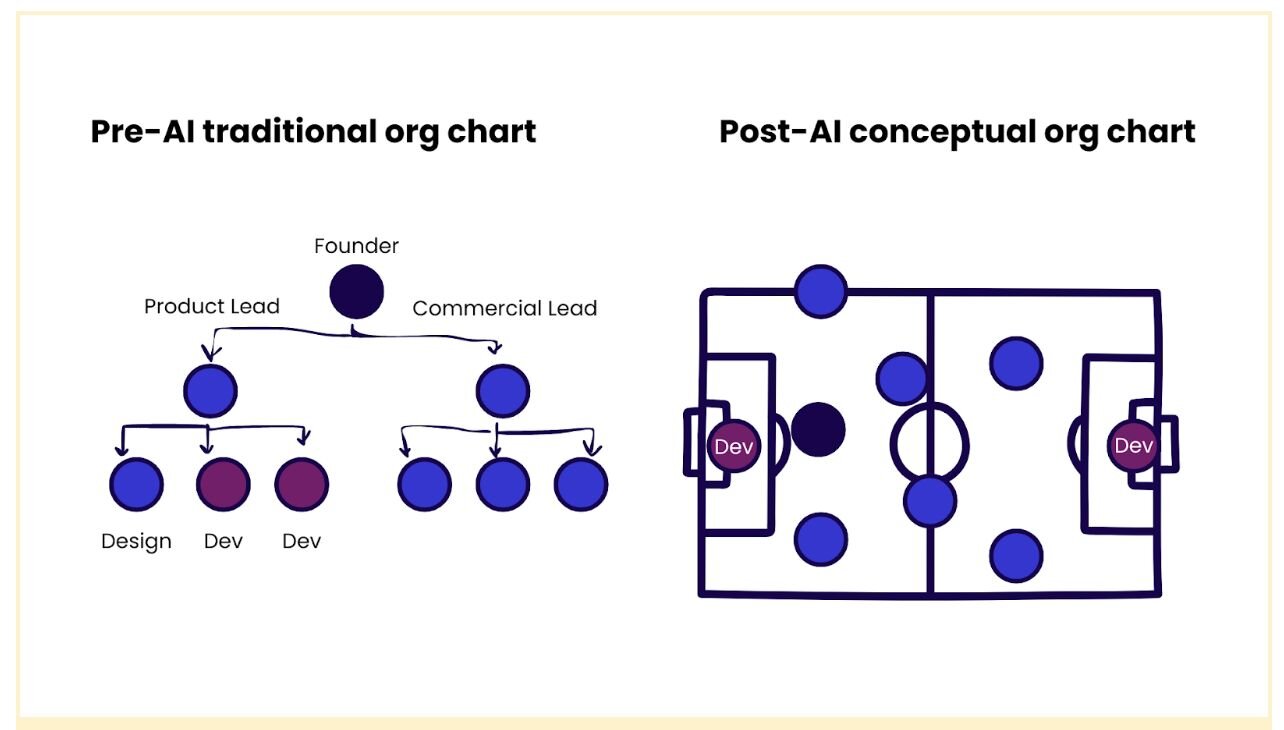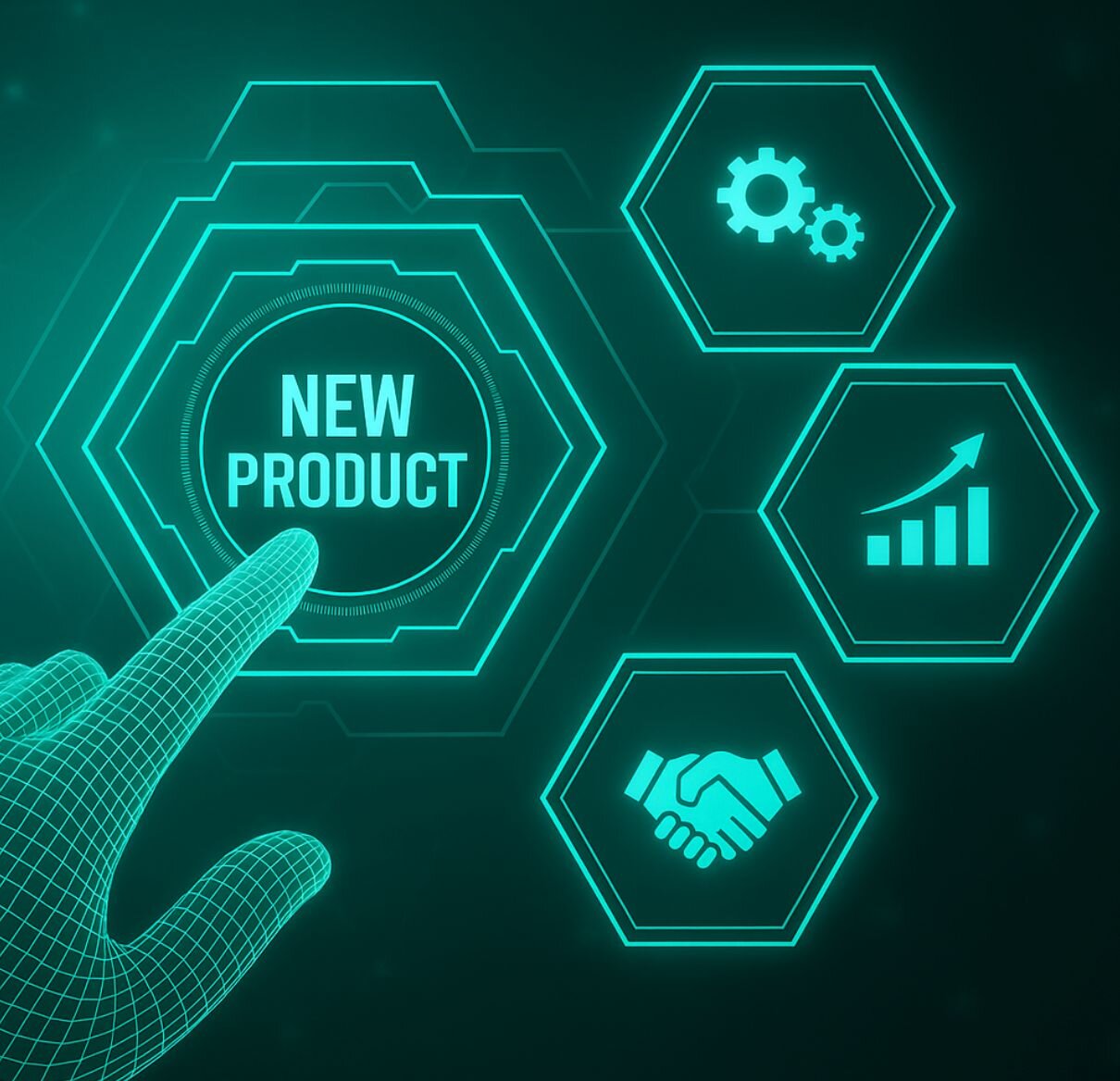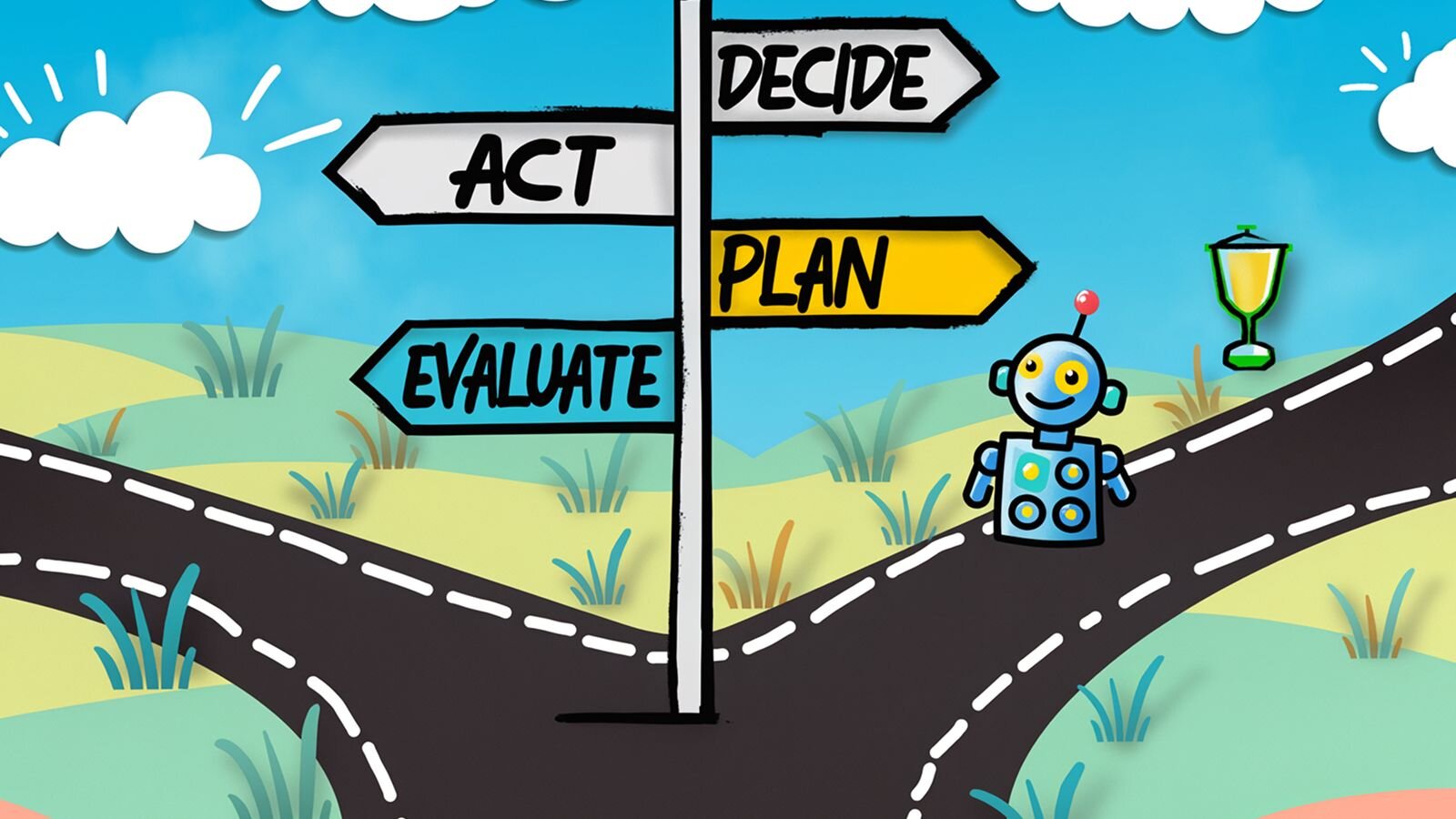What I learned from my journey into freelance product management.
In 2017, I left my full-time job to work as a freelance product manager. Recently, someone was surprised to learn that I’d done this and started quizzing me. So, I thought I’d share what we talked about in case it's useful for you too. Starting with the elephant in the room…
Can you be a freelance product manager?
In short, yes. I've been doing it for over five years. However, I understand the skepticism. Certain aspects of the role, like market expertise, can’t be easily outsourced.
Typically, I'm brought in to address specific problems, leveraging skills from past projects, such as user research and coaching.
Projects are usually longer-term, too (three months or more) compared to hiring a freelancer for a quick job, like designing a new logo. For example, I spent five months developing a web interface for a healthcare inspection platform.
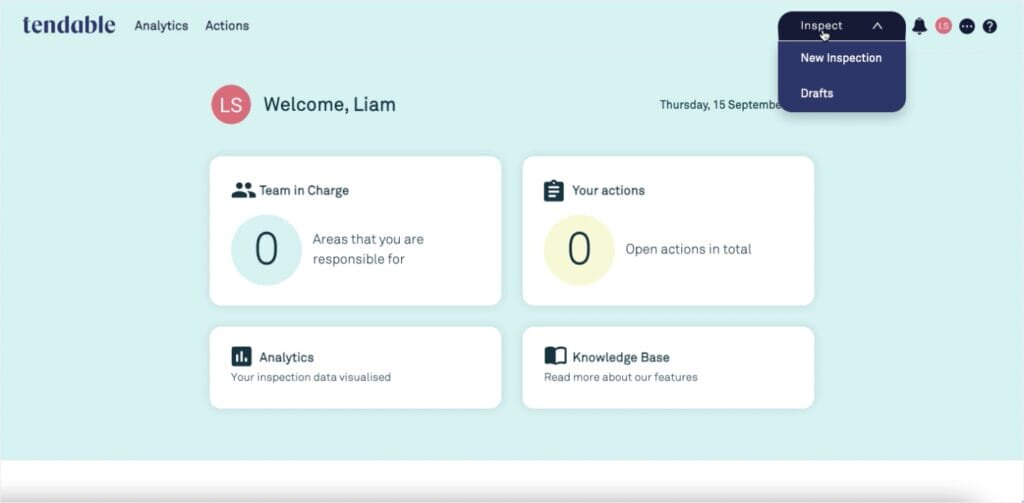
[I spent five months building a web interface for a healthcare platform.]
Why do companies hire freelance product managers?
In my experience, companies hire freelance product managers for the same reasons they hire any other freelancer, contractor, or consultant – they need to address a specific issue and / or are not ready to commit to a full-time hire.
For example, a growing start-up whose CEO needed help growing subscription revenue for their product hired me. Another example is a multinational company testing a new venture and hiring me to help launch the first version.
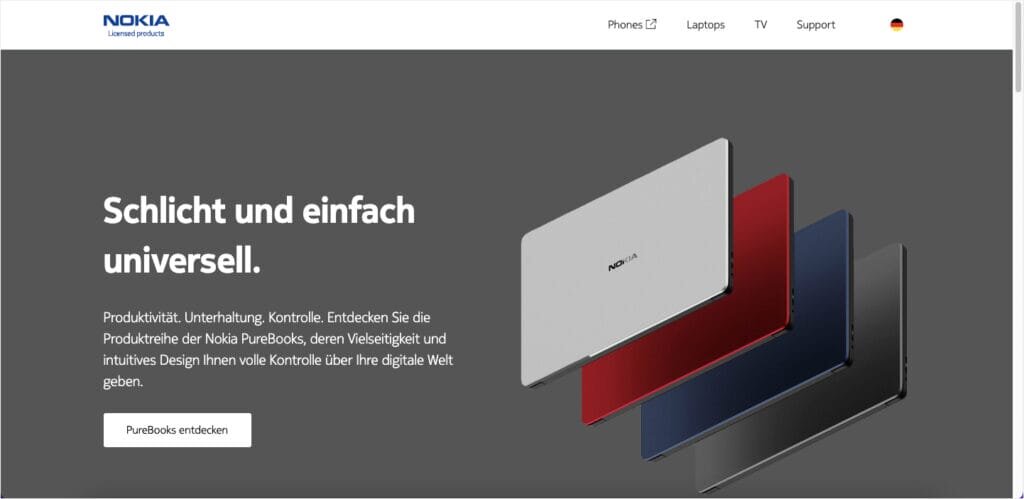
[I helped to test a new venture for a multinational company.]
How can you find work as a freelance product manager?
Finding work as a freelancer is a blend of job hunting as an employee and building a new business pipeline. Here's my advice:
Become proficient in something
As a freelancer, you'll be hired to solve problems you've solved before. Hence, you need to excel in something people need. I spent nearly five years assisting multinationals in creating digital products before transitioning to freelancing, for example.
Revamp your profile
How can you help your clients? What type of work do you want to do? Where is there demand? These are questions to consider when positioning yourself as a freelancer.
This could be as simple as researching hiring trends (I like IT Jobs Watch), seeing where your skills and interests overlap, and then optimising your LinkedIn profile and CV. I paid a CV writer, called Devin, to help with this part and feel it was worth every penny.
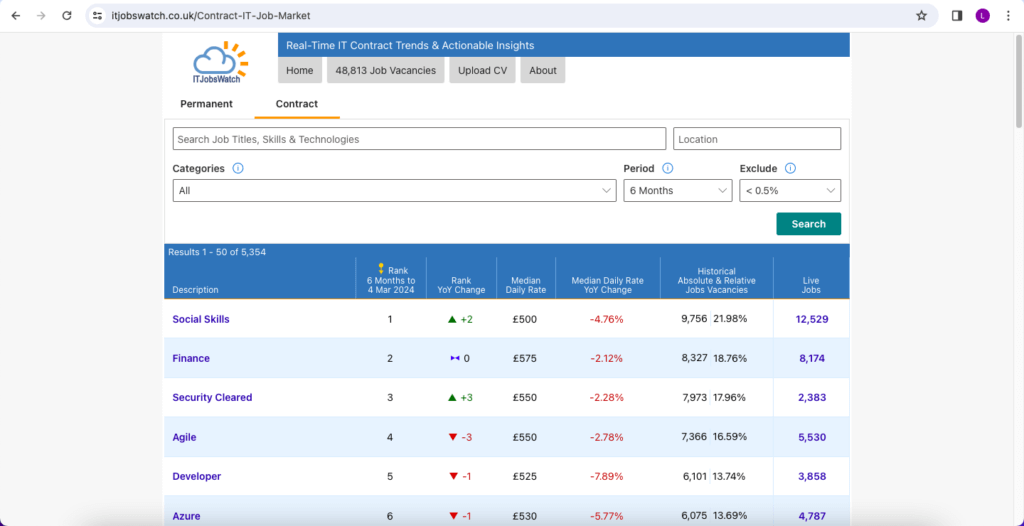
[You can find out which skills are in demand using sites like IT Jobs Watch.]
Stay informed
A tip I picked up from Justin Welsh’s LinkedIn OS is to follow industry news to predict potential hiring opportunities. For example, when a start-up closes a funding round.
One way to do this is to set up a Google Alert to get relevant news stories sent to your inbox. From here, you can follow relevant companies.
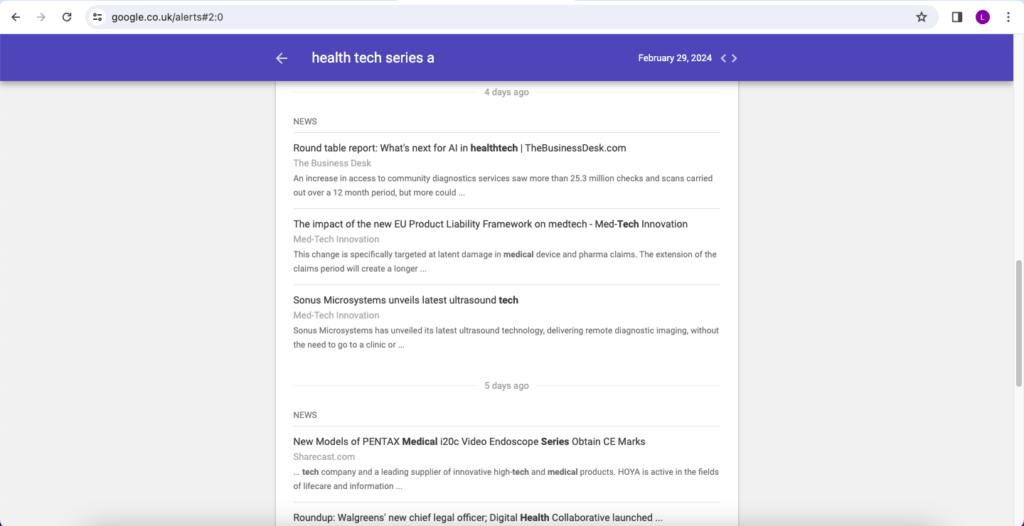
[Follow industry news to discover companies that may be hiring soon.]
Use job boards
I found my first freelance contract through Indeed, a popular job board. I’ve also had success with LinkedIn and Mind the Product. Job boards are competitive but also widely used by recruiters and hiring managers, so don’t discount them.
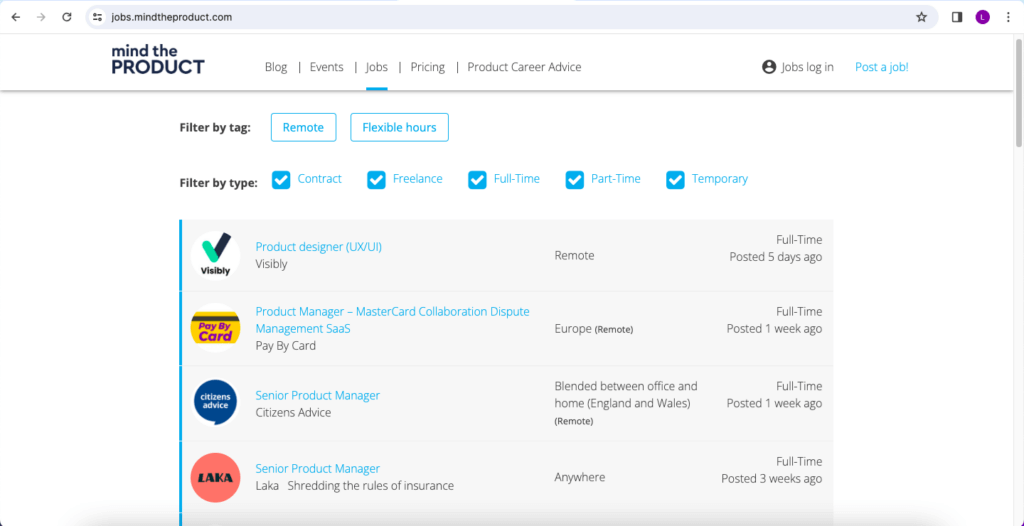
[Job boards are a useful place to find freelance product manager opportunities.]
Join talent networks
Talent networks like Toptal, Gigster, and MVP Match allow you to apply as a freelancer. After being vetted, you'll gain access to a variety of job briefs. I have gotten some leads from talent networks. However, I’ve never landed any paying work often due to timing.
Leverage your network
About half of my freelance jobs have come through referrals. So, for example, if you know someone at a company that is hiring, drop them a message and ask for an introduction.
Likewise, be proactive in growing your network by attending events like ProductTank, being active in online communities, or whatever works for you. This brings me onto…
Stay visible
It's important to be active where potential clients are. There are many options, but I focus on LinkedIn, guest blogging (like this article), and occasional catch-ups with my contacts. The point is to be visible, not clever. Even my most mundane LinkedIn posts have led to work.
Use side projects to stand out
I’ve been told that my side projects, such as MealPro App, have contributed to landing roles. Whilst you don’t need to build a fully-fledged start-up, side gigs are worth considering to help you stand out and gain more experience in your desired field.
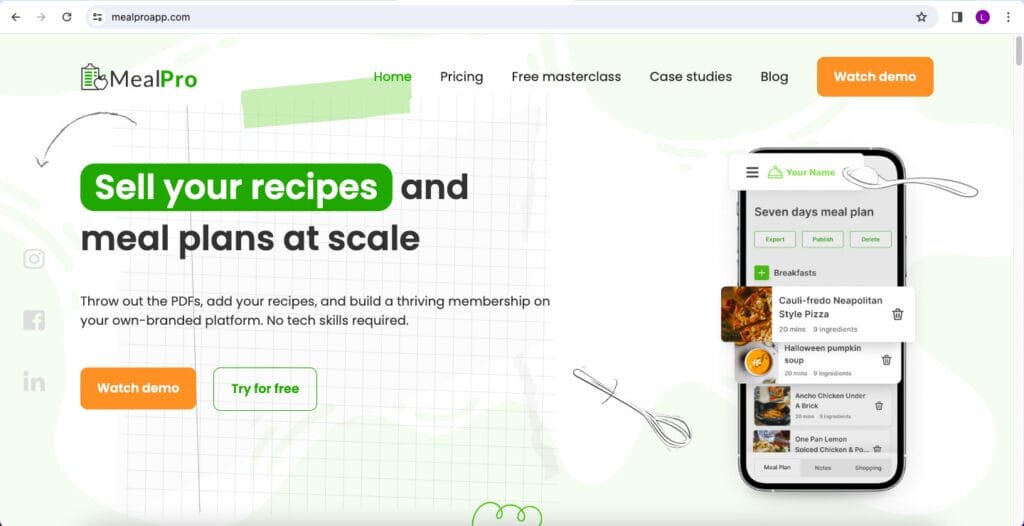
[Working on a side gig related to my field has helped me land freelance projects.]
What's the hourly rate for a freelance product manager?
Given the nature of the work, I typically charge a daily rate instead of an hourly one. As a ballpark, I've seen daily rates ranging from £350 to £750 ($450 to $950) for individual contributors, and even more for advisory or senior roles. This is for an eight-hour workday.
Sometimes, I also offer fixed-price monthly retainers when working on a fractional basis.
While I don't usually bill by the hour, I've seen hourly rates on freelance marketplaces like Upwork range from $10 to over $150.
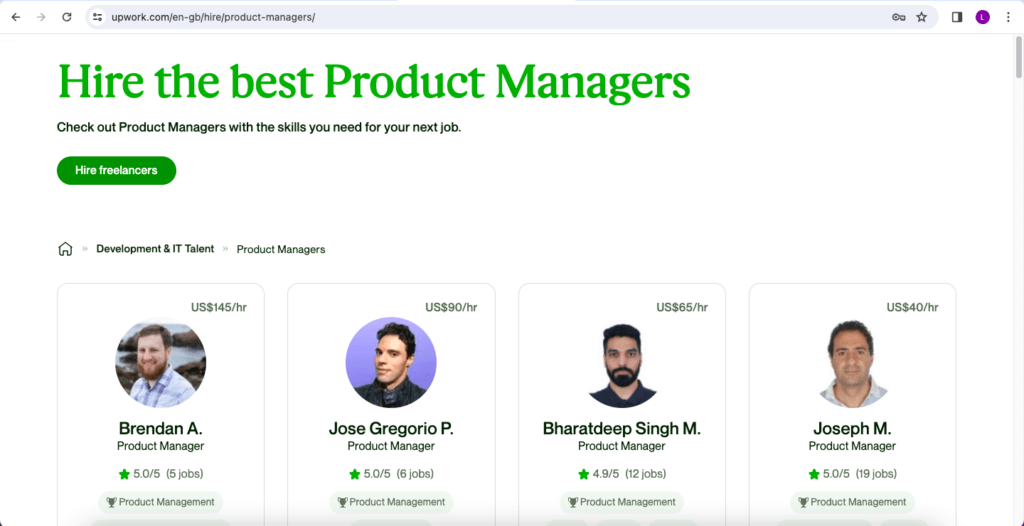
[Freelance marketplaces quote hourly rates from $10 to over $150 for product managers.]
In general, the rates can vary widely based on factors such as the client's location and industry, your experience, who else is involved (i.e. recruiters), market conditions, and more.
What are the main challenges of a freelance product manager?
Finding work (it’s tough)
The biggest challenge for me as a freelance product manager is finding work. Even though the demand for product managers has risen, the demand for freelancers is still limited. It's a competitive field, but there are strategies that can help (as I mentioned earlier).
Gaps between projects
Another challenge is the gaps between projects. Despite the attractive day rates, when you calculate them over time, it's similar to a full-time job due to these gaps. However, you can use these gaps to work on side projects, learn new skills, or even take holidays.
Stunted career progression
Another challenge is the stunted career progression. Your clients won't pay for your training, so you'll need to take charge of your learning and development. Also, clients will hire you based on your past work, making it hard to move up the traditional career ladder.
What else should you know?
There are other differences between being a freelancer and in employment. Here are some of them:
Interviews
The hiring process for freelancers is quicker, usually one or two conversations. This can be good, but it also means you need to make a strong impression or risk losing the opportunity.
Contracts
As a freelancer, you’ll likely need to get used to writing and reviewing Statements of Work (SOW) and Master Service Agreements (MSA). Luckily, you can get templates for these.
Expenses
You'll have to cover your own expenses and benefits, like your laptop, travel, and pension contributions. You might also need business insurance, an accountant, and more.
So…should you become a freelance product manager?
Becoming a freelance product manager is a personal decision. There are benefits, like the flexibility to choose your projects and more time for side projects and holidays. But there are also drawbacks, like periods when you're not working and limited career progression.
Whether you're considering this path or you're already on it, I hope you found this useful!
P.S. I used a free AI writing assistant (no affiliation) to edit a draft of this article and was pleasantly surprised with the results. If you don't like it, blame the AI!
Frequently asked questions
What's a fractional product manager?
A fractional product manager is an expert embedded within a company on a part-time basis (i.e. for a “fraction” of their availability). Often, they will focus on a specific area.
Is a freelance product owner the same as a freelance product manager?
While the terms are often used interchangeably, the roles of a product owner and a product manager are different. See this article to learn more about typical titles and hierarchies.
How can you break into product management?
If you're interested in becoming a product manager, I've written another article with tips on how to land your first role.
Still got questions?
Leave a comment or shoot me a message on LinkedIn.


